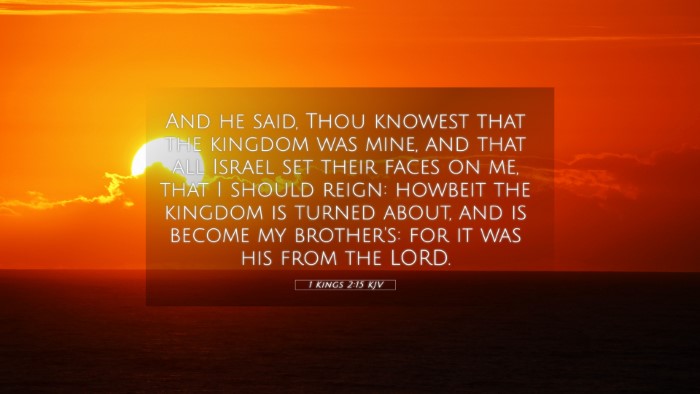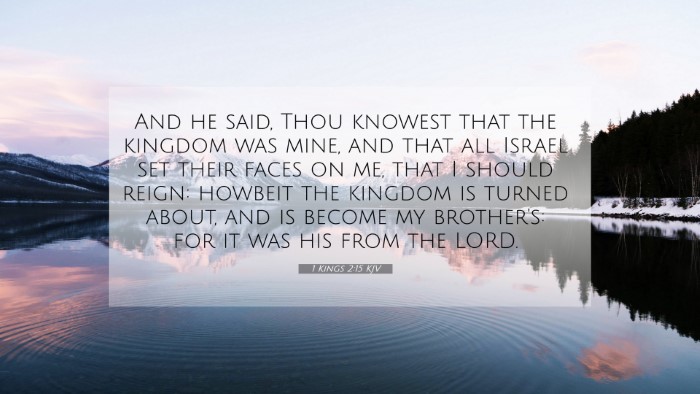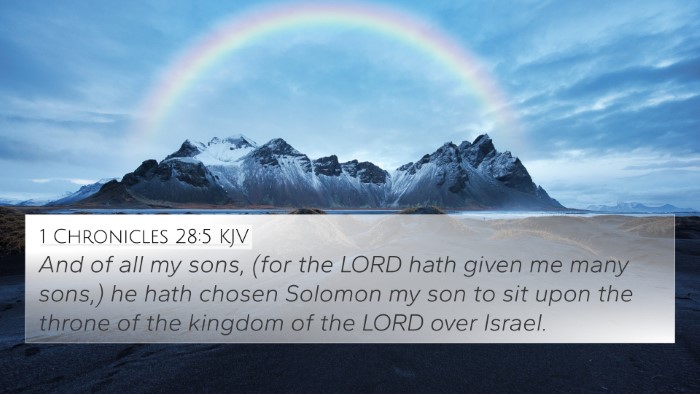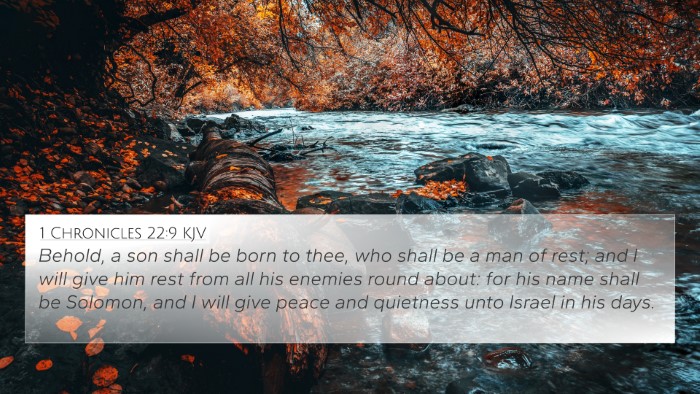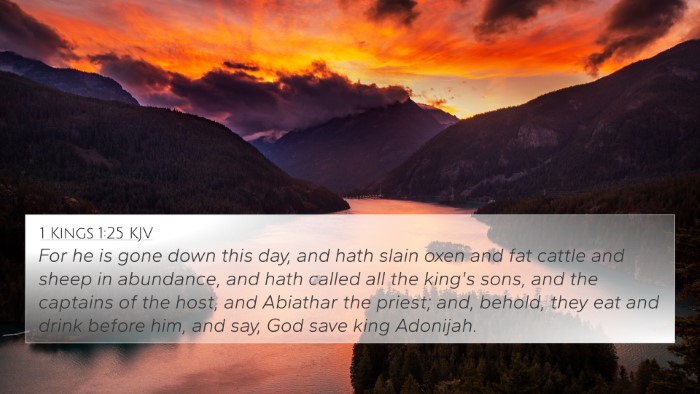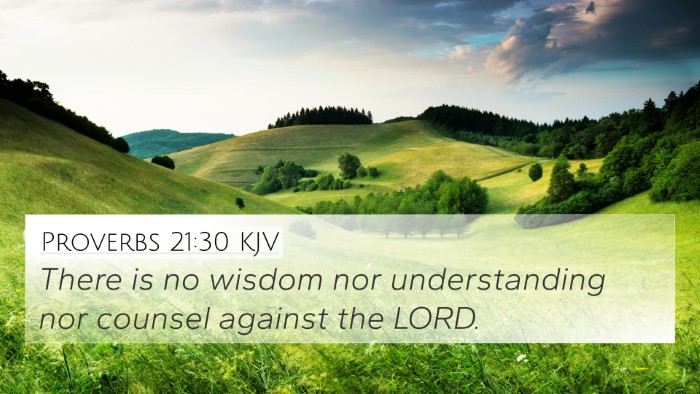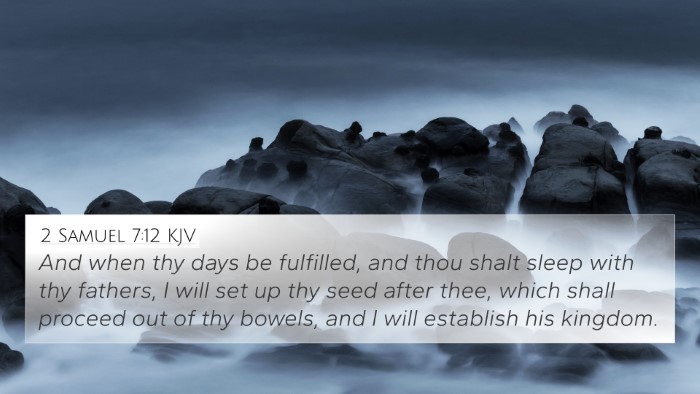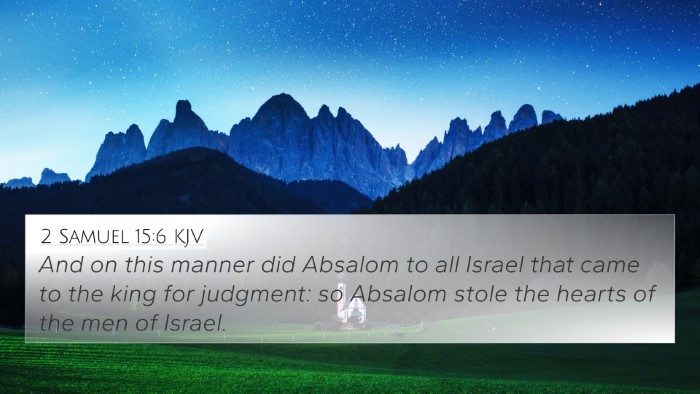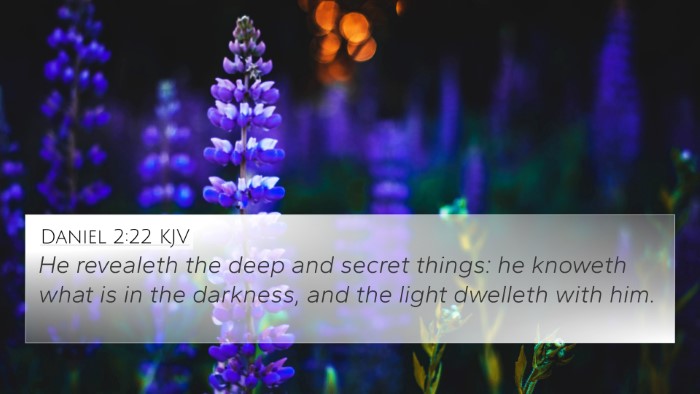Understanding 1 Kings 2:15
1 Kings 2:15 states:
"And he said, Thou knowest that the kingdom was mine, and that all Israel set their faces on me, that I should reign: howbeit the kingdom is turned about, and is become my brother's: for it was his from the Lord."
Summary of the Verse
This verse captures the moment when Adonijah, son of David, acknowledges that he was initially the favored heir to the throne. However, he recognizes the divine sovereignty that has shifted the kingdom to his younger brother Solomon, demonstrating both his ambition and his understanding of God's will.
Commentary Insights
Matthew Henry's Commentary
Henry emphasizes the critical acknowledgment of God’s will in the affairs of men. Adonijah’s claim to the throne was rooted in popularity and expectation, yet he humbly submits to the providential decision that has granted the kingdom to Solomon. Henry draws attention to the fact that human desire must ultimately align with divine intention. The transition of power showcases God's directive hand in Israel's monarchy.
Albert Barnes' Notes
Barnes also reflects on Adonijah's predicament. He points out that Adonijah represents a common human tendency to grasp for power and recognition despite the divine plan. Barnes elucidates the theme of rightful inheritance here, stressing that while Adonijah had a valid claim in terms of birthright, the kingdom was granted to Solomon as a part of God’s unfolding narrative for Israel. This emphasizes the importance of recognizing God’s ordination in leadership positions.
Adam Clarke's Commentary
Clarke elaborates on the emotional and political implications of Adonijah’s statement. He highlights the tension between familial loyalty and personal ambition. Adonijah recognized Solomon's divine favor and the loyalty of the people towards his brother. Clarke stresses that this moment is pivotal for understanding the dynamics of leadership, where the one who is chosen often faces disputes and rivalries from those who perceive themselves as entitled due to heritage.
Key Themes and Concepts
- Divine Sovereignty: The verse illustrates that God’s will supersedes human ambitions and claims.
- Recognition of God's Plan: Adonijah’s admission signifies the importance of recognizing God’s appointed leaders.
- The Struggle for Power: The text addresses themes of rivalry and the complex nature of leadership succession in the Biblical narrative.
- The Role of Heritage: While Adonijah had a claim by birth, the ultimate authority lies with God’s choice.
Cross-References
To deepen the understanding of 1 Kings 2:15, here are several related scripture verses that provide additional context:
- 1 Samuel 16:1: God's choice of David as king, establishing God's authority in leadership.
- 2 Samuel 7:12-13: God's promise to David regarding his lineage and Solomon's role in building a temple.
- 1 Kings 1:5-6: Adonijah’s attempt to claim the throne before David’s decree, demonstrating ambition.
- 1 Chronicles 22:9: God's affirmation of Solomon as the chosen one, linking to 1 Kings 2:15.
- Psalm 75:6-7: A reminder that promotion comes from God, not human effort or desire.
- Proverbs 21:1: Insight on how the heart of kings is in the hand of the Lord, guiding outcomes.
- Romans 13:1: An assertion of God's ultimate authority over all earthly powers, relating to leaders.
Conclusion
1 Kings 2:15 serves as a powerful reminder of the intersection between human aspiration and divine intention. It underscores the necessity of recognizing God's authority in leadership and the unfolding of His plans over personal ambitions. With insights drawn from esteemed Biblical commentators, one can appreciate the depth of the verse and its implications for understanding God’s involvement in earthly rulership.
Thematic Connections and Reflection
This passage encourages a reflection on the connections between various Bible verses, particularly concerning themes of divine sovereignty, the inheritance of leadership, and the rightful acknowledgment of God's roles in our lives. Through tools for Bible cross-referencing, believers can explore how different scriptures inform one another, creating a rich tapestry of understanding.

